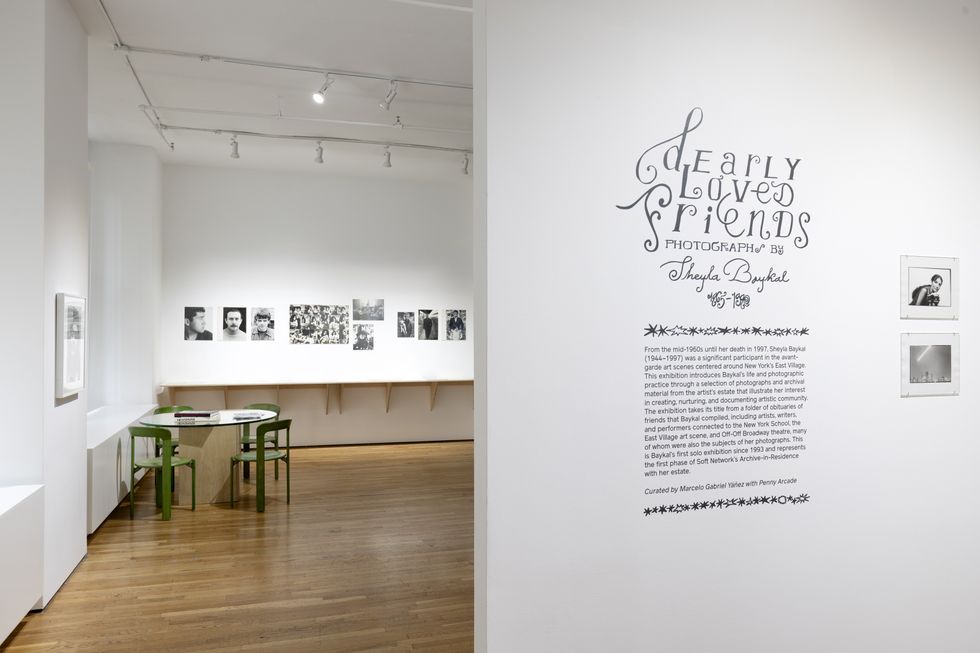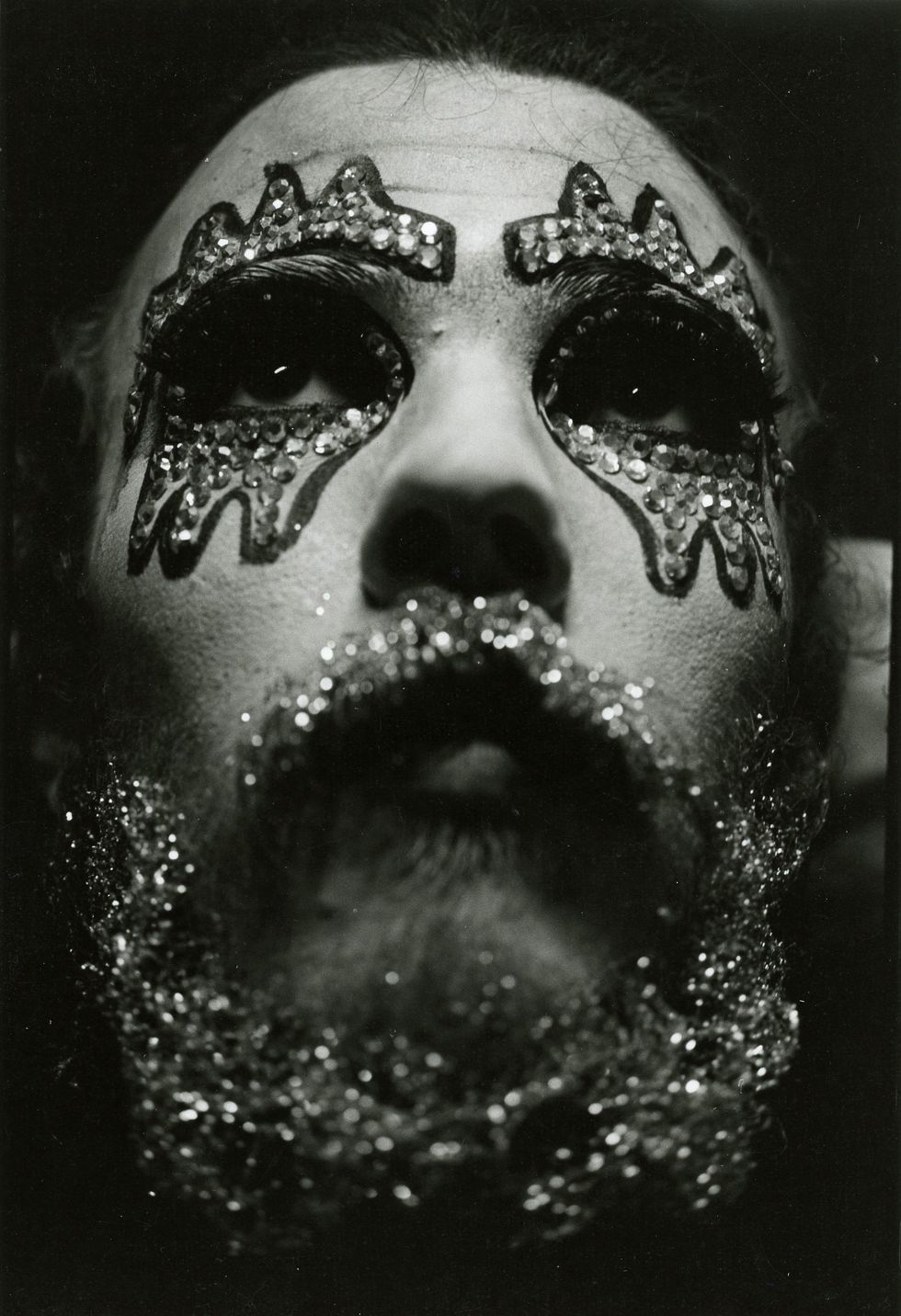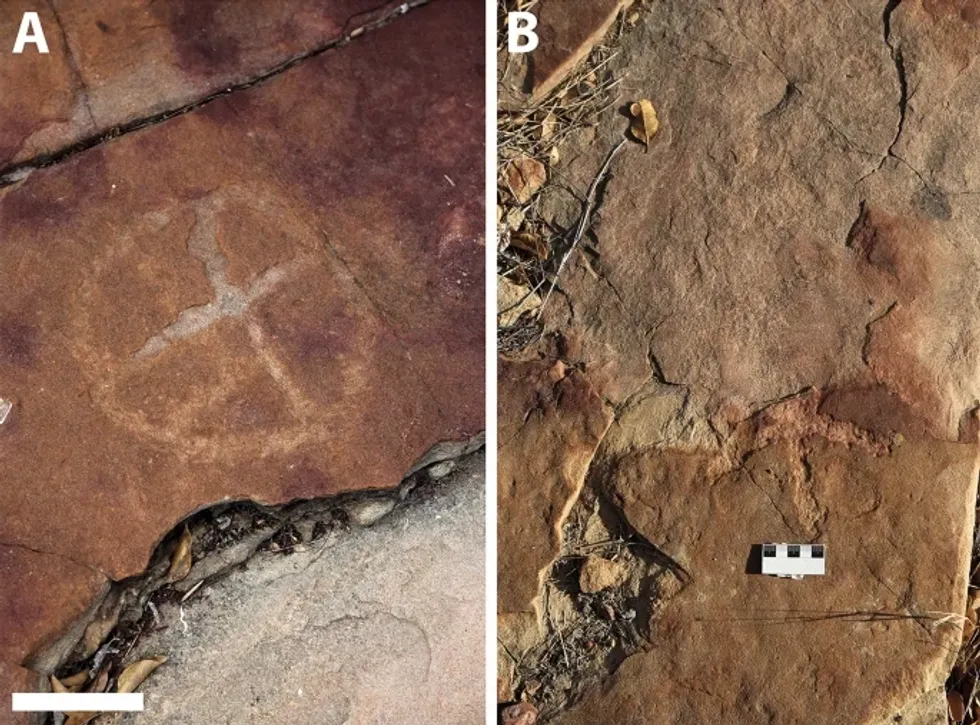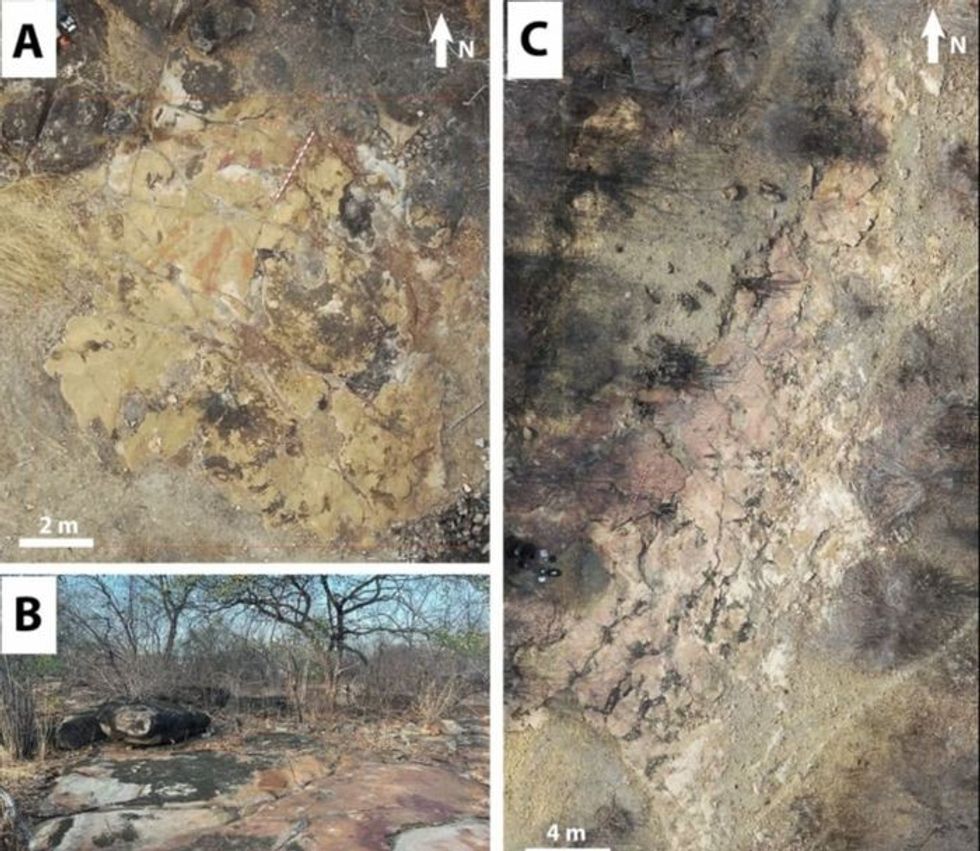Peter Gabriel shared an emotional salute to Kanzi, the late bonobo involved in famous studies on great ape language—and a fascinating musical experiment the former Genesis front man helped facilitate. Kanzi died on March 18, 2025, at age 44, prompting Gabriel to reflect on "one of the most remarkable experiences" of his life.
The "Shock the Monkey" singer, always eager to explore big ideas and ever curious about advancements in technology, grew intrigued by reports in the early 2000s of animals learning human language. He’d spent decades working with musicians from other cultures, frequently finding common ground through sound over words, which made him wonder: Could that same principle be applied to the human-ape relationship?
"[O]ne of the things we noticed working with musicians from all around the world is often when we didn't share any common language, we could sit down and make noises together, and we'd find a way to communicate," Gabriel told NPR in 2013. "So, I began some cold-calling to some of these places that had worked with apes, it was, particularly at that point, and spoke to Sue Savage-Rumbaugh, who was at the Language Research Laboratory [at Georgia State] in Atlanta. And when I just threw the idea out at her, she said 'come on down.'"
- YouTubeyoutu.be
- YouTubewww.youtube.com
As Gabriel notes in the tribute, the program focused on the "extraordinary" Kanzi and his half-sister Panbanisha. "[They had] shown amazing ability in communicating with lexigrams that Sue and her partner Duane had created. It was also clear that they had a good understanding of English." Upon arriving in Atlanta, they asked the apes to individually sit down at a keyboard and improvise music—first with Gabriel and then later with his band. "There were no rewards," he writes, "and it was as much an exploration for them as it was for me."
The chemistry wasn’t immediate, though. "It took time," he adds, "to build trust and to convince them that they could make any musical choices they wanted and that they would be properly listened to." He elaborated on the musical exchange to NPR, noting that the apes were familiar with percussion instruments but had never seen a keyboard. "And I was working particularly with this wonderful bonobo called Panbanisha, who was there with her baby, and she was I think, of the apes that I play the most, sort of sensitive and responsive," he said. "And we asked her in the end to play with just one finger. Of course she put her own spin on that and took that as two one fingers, but then she began to improvise. And that is on the tape that you've seen and heard."
In his tribute, he says the results left him "blown away": "It was almost as if I had travelled through time and was having a casual dialogue with my hominid ancestors." In a YouTube video posted in 2012 (the year Panbanisha died, at age 26), he smiled at the memory of their time together, enthusing, "There was clear, sensitive, sharp musical intelligence at work, and it was very exciting."
- YouTubewww.youtube.com
Luckily for us, he’s also shared footage from these encounters, one featuring Gabriel’s synthesizer drone and another with a funkier, more rhythmic backing. (In the latter, you can clearly see Gabriel’s face and the bass guitar of longtime bandmate Tony Levin.) The apes respond with surprising musicality, appearing to repeat certain melodic phrases and display at least some sense of timing.
Gabriel was so moved by the experience that it inspired him to help establish Interspecies Internet, which describes itself as a "global multidisciplinary think-tank working to facilitate the acceleration of interspecies communication." It also stirred up a song: 2002’s "Animal Nation."
"If you were to arrive on another planet and discovered two species that were less than 1% different, you’d probably assume they could do many of the same things," Gabriel says while introducing the piece during the 2003 concert film Growing Up: Live. "Yet on this planet, we humans believe we are much smarter than our ape relatives, but in truth we’re only .6% difference in our DNA. Last year we had an amazing experience creating music with some bonobo apes. They turned out to have extraordinary understanding and sensitivity communicating and playing music with us."
- YouTubewww.youtube.com
The song’s lyrics directly touch on his time with Kanzi and Panbanisha: "I didn't meet you in the jungle / Swinging from a tree / I sat down at the piano / You were playing with me," Gabriel sings. "I couldn't believe all the things you could do / The apes I've seen were in the zoo / They say we are unique with this language that we speak / But you have proved them wrong / Skinner and Chomsky, how could they be so blind / With evidence this strong? / Intelligent life is all around us."
The Ape Initiative writes that they’re working with Wildstar Films on a documentary focused on Kanzi’s life and cultural impact. In his memory, they’ve established the Kanzi Bonobo Fund to "ensure the lifelong support and care of Kanzi’s bonobo family members: Elikya, Nyota, Maisha, Mali, Clara, and Teco."


















 Steve Jobs in his traditional work ensemble.
Steve Jobs in his traditional work ensemble.

 frank GIF
frank GIF
 Sheyla Baykal, Angels of Light performance Gossamer Wings, Theatre for the New City, 1973. Scan from 35mm color slide.© 2025 Estate of Sheyla Baykal. Courtesy Penny Arcade, Marcelo Gabriel Yáñez and Soft Network.
Sheyla Baykal, Angels of Light performance Gossamer Wings, Theatre for the New City, 1973. Scan from 35mm color slide.© 2025 Estate of Sheyla Baykal. Courtesy Penny Arcade, Marcelo Gabriel Yáñez and Soft Network. Sheyla Baykal, Marsha P. Johnson from Butt in!, 1988. Scan from 35mm color slide from slide show created by Sheyla Baykal with a selection of her portraits of friends spanning1973-1987, originally presented May 1988 at 7 East Third Street, Bill Rice’s apartment gallery.© 2025 Estate of Sheyla Baykal. Courtesy Penny Arcade, Marcelo Gabriel Yáñez and Soft Network.
Sheyla Baykal, Marsha P. Johnson from Butt in!, 1988. Scan from 35mm color slide from slide show created by Sheyla Baykal with a selection of her portraits of friends spanning1973-1987, originally presented May 1988 at 7 East Third Street, Bill Rice’s apartment gallery.© 2025 Estate of Sheyla Baykal. Courtesy Penny Arcade, Marcelo Gabriel Yáñez and Soft Network. Sheyla Baykal, Mario Montez, Palm Casino Revue, 1973-74. Scan from 35mm color slide. © 2025 Estate of Sheyla Baykal. Courtesy Penny Arcade, Marcelo Gabriel Yáñez and Soft Network.
Sheyla Baykal, Mario Montez, Palm Casino Revue, 1973-74. Scan from 35mm color slide. © 2025 Estate of Sheyla Baykal. Courtesy Penny Arcade, Marcelo Gabriel Yáñez and Soft Network. dearly Loved friends: Photographs by Sheyla Baykal, 1965–1990. Installation view, Soft Network, New York City, 2025. Photo: Alexa Hoyer
dearly Loved friends: Photographs by Sheyla Baykal, 1965–1990. Installation view, Soft Network, New York City, 2025. Photo: Alexa Hoyer Sheyla Baykal, John Eric Broaddus, 1981. Scan from 35mm color slide. © 2025 Estate of Sheyla Baykal. Courtesy Penny Arcade, Marcelo Gabriel Yáñez and Soft Network.
Sheyla Baykal, John Eric Broaddus, 1981. Scan from 35mm color slide. © 2025 Estate of Sheyla Baykal. Courtesy Penny Arcade, Marcelo Gabriel Yáñez and Soft Network. Sheyla Baykal, Angel Jack, 1973. Silver gelatin print mounted on board, 10 x 8 inches. ©2025 Estate of Sheyla Baykal. Courtesy Penny Arcade, Marcelo Gabriel Yáñez and Soft Network.
Sheyla Baykal, Angel Jack, 1973. Silver gelatin print mounted on board, 10 x 8 inches. ©2025 Estate of Sheyla Baykal. Courtesy Penny Arcade, Marcelo Gabriel Yáñez and Soft Network.

 Rock deterioration has damaged some of the inscriptions, but they remain visible. Renan Rodrigues Chandu and Pedro Arcanjo José Feitosa, and the Casa Grande boys
Rock deterioration has damaged some of the inscriptions, but they remain visible. Renan Rodrigues Chandu and Pedro Arcanjo José Feitosa, and the Casa Grande boys The Serrote do Letreiro site continues to provide rich insights into ancient life.
The Serrote do Letreiro site continues to provide rich insights into ancient life.